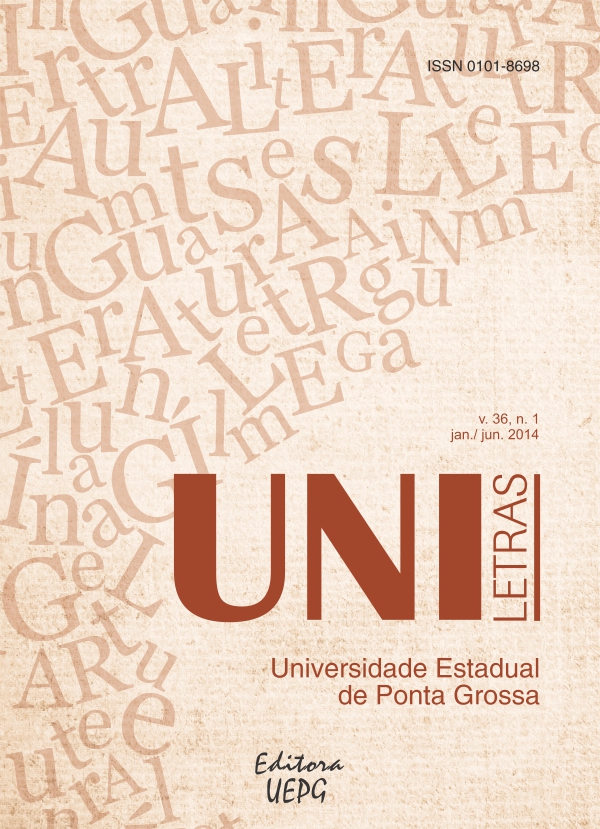A SINGULARIDADE DA RECURSÃO NA LINGUAGEM HUMANA
DOI:
https://doi.org/10.5212/uniletras.v36i1.6411Palavras-chave:
, Recursividade, Faculdade da Linguagem em Sentido Amplo, Faculdade da linguagem em Sentido RestritoResumo
: Este artigo trata do fenômeno recursivo das línguas naturais com base nos pressupostos teóricos da Gramática Gerativa de Noam Chomsky (1957). A noção de recursividade é uma questão polêmica e tem sido motivo de grande debate na literatura recente. Hauser, Chomsky e Fitch (2002) defendem a ideia de que a faculdade da linguagem seja dividida entre sentido amplo (FLB) e restrito (FLN), extraindo da Biolinguística traços que são compartilhados com os outros animais, e traços que são especificamente humanos. Assim a FLN é uma propriedade que envolve apenas a infinitude discreta com base na recursividade e é única ao ser humano. No entanto, Pinker e Jackendoff ( 2005) desafiam a hipótese da recursividade como componente exclusivo à linguagem humana. Os autores argumentam que há outros elementos que também podem ser únicos à faculdade humana da linguagem e que a recursividade parece desempenhar um papel em outros sistemas da cognição humana.
Downloads
Publicado
Edição
Seção
Licença
Autores que publicam nesta revista concordam com os seguintes termos:
a) Os autores mantém os direitos autorais e concedem à revista o direito de primeira publicação, com o trabalho simultaneamente licenciado sob a Creative Commons Attribution License que permite o compartilhamento do trabalho com reconhecimento da sua autoria e publicação inicial nesta revista.
b) Esta revista oferece acesso livre imediato ao seu conteúdo, seguindo o princípio de que disponibilizar gratuitamente o conhecimento científico ao público proporciona maior democratização mundial do conhecimento. Para maiores informações sobre esta abordagem, visite Public Knowledge Project, projeto que desenvolveu este sistema para melhorar a qualidade acadêmica e pública da pesquisa, distribuindo o OJS assim como outros softwares de apoio ao sistema de publicação de acesso público a fontes acadêmicas. Os nomes e endereços de e-mail neste site serão usados exclusivamente para os propósitos da revista, não estando disponíveis para outros fins.

This work is licensed under a Creative Commons Attribution 4.0 International License.





